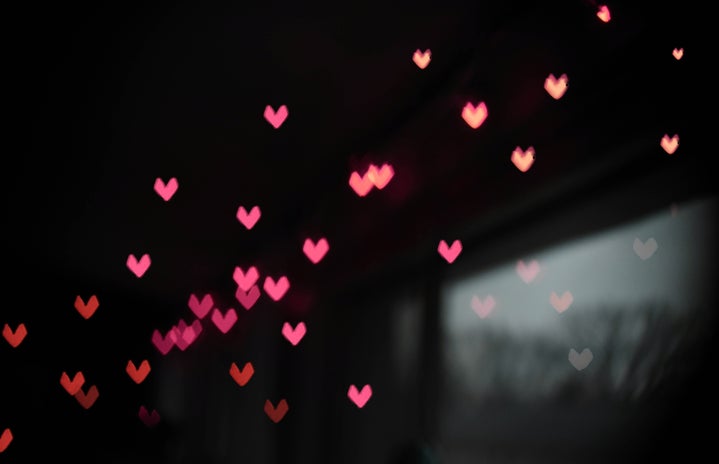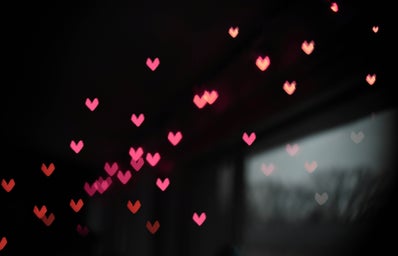I never understood why some people were called ‘hot.’ It was a foreign concept to me. Why hot?
Only once I was older did I understand that sexual attraction causes certain biological reactions in human beings. One of which is increased body temperature.
I still didn’t understand. I didn’t get ‘hot’ for anyone. When my friends would show me drool-worthy photos of Jensen Ackles, I would just stare. He is a very aesthetically pleasing man, no doubt about it. But it was nothing more than a picture, his sculpted face like that of a beautiful work of art. I didn’t stare in desire. I stared in awe that the human form was able to arrange itself in such as way as that. I would agree half-heartedly.
“Yeah, he’s hot, I guess,” I’d say, no emotion entering my tone.
My extended family always liked to ask if I was interested in anyone and I told them the truth. I was always interested in boys and ran through interests like crazy, but sex was the last thing in my mind. Even thinking about sex made (and still does make) me cringe and I was never infatuated with guys. My family wasn’t exactly the most sheltered when it came to this kind of thing and my mom was pretty open in conversation with me when I had questions.
It was only when I was about sixteen that I uncovered the truth about myself.
I started doing research after reading a book where the main character starts to explore her sexuality with a couple of guys (the usual love triangle crap) and I was curious. The author kept describing sexual attraction and I had heard from other people that it physically hurt at times to not be able to satisfy their sexual needs. This had never happened to me, so I looked into what it meant when there was a lack of that.
To my shock, there was a sexuality that defined what I was feeling. The desire for a romantic relationship, but not feeling sexual attraction to people. I was floored.
It wasn’t like I hadn’t been exposed to people of other sexualities. The first friend who I knew was gay came out to a group of friends (including me) when we were all in junior high school. Her parents weren’t very supportive and I was floored that they wouldn’t be. I asked her when she knew (having known nothing of people being gay before) and she told me since she was really little. She is currently in a very happy and adorable relationship with her significant other whom she met at college.
A small aside: an odd facet of asexuality is that a lot of people fall on this spectrum and never discover that they are this orientation until later in life. I found out when I was sixteen. Many ace people never find out until they are in their twenties or until they are exposed to other ace people.
That brings me to the subsets of asexuality. There are three general subsets: asexual, demisexual, and greysexual. Asexual is the main one: not feeling attraction to anyone, regardless of interpersonal connection, aesthetic, gender or sexual orientation. Demisexual means that you do not feel sexual attraction to someone until you have a deep emotional bond with the person. Greysexual means only feeling sexual attraction in certain scenarios or occasions. All of these fall under the overarching ace umbrella.
There are also people do not feel romantic attraction to others, but experience sexuality in all kinds of different ways. These people are aromantic and are often closely associated with the asexual community. I will not talk about aro people and their unique perspective here because they deserve their own article at the scale of this article to fully explain aromanticism.
For those of you out there who are asking yourself, “Okay, so what can I do?” the biggest thing allies can do is spread the word. Asexuality is a minority within a minority (1% of the human population) and there are still many people who question if ace and aro people even belong in LGBTQIA+ spaces. This question has returned to the mainstream following 2017 when there was a rise in exclusionist behavior among people within the LGBTQIA+ community in an effort to keep asexuals and aromantics out of these spheres, most specifically cisgender heteromantic asexuals and cisgender heterosexual aromantics. This stems from the belief that asexual and aromantic people do not experience the same level of discrimination and harassment that sexually oriented people go through and that asexuals and aromantics have a level of privilege because they are not going through the same national things. This simply isn’t true.
While experiences are very different, the level by which asexual and aromantic people go through discrimination is much more of the person by person level rather than a wide-spread form of discrimination that other members of the queer community face. Most discrimination comes from those closest to ace people including significant others, friends, and family members. In our sexually charged society, the standard is that people want to have sex with each other and many cultures and individuals see reproduction and sexual activities as an integral part of what makes us human and a duty for all people. There may be some level of privilege on a national level, but within kinship groups, it can be very tough.
The DSM V, the standard that most psychologists and psychiatrists use to measure and diagnose psychological disorders, still lists a lack of interest in sexual activities and a lack of sexual attraction as a mental disorder. This is very problematic because while there are people out there who do not feel sexual attraction, it is equally true that it can only be considered a disorder if the very thing is causing serious and extended emotional and biological distress to the person suffering from it. For people within the ace/aro community, being ace/aro is a part of who they are and it not up to a doctor to try and cure something that is natural and has existed.
We are not celibate. We are not in need of ‘the right dick/vagina’ or the right person. We are not less human. It is not a phase. It is not a disorder. It’s not all in our head. It’s not a side-effect of our mental illness. It’s not a side-effect of our past. It doesn’t mean we will be alone forever. We are not just waiting. We don’t want to make a clone of ourselves. This isn’t because we’ve never dated or that no one has taken an interest in us. We’re not selfish. We are not less deserving of love. It’s not personal. We do not owe the world and humanity anything just for existing.
I may love gardening, but I am not a plant.


